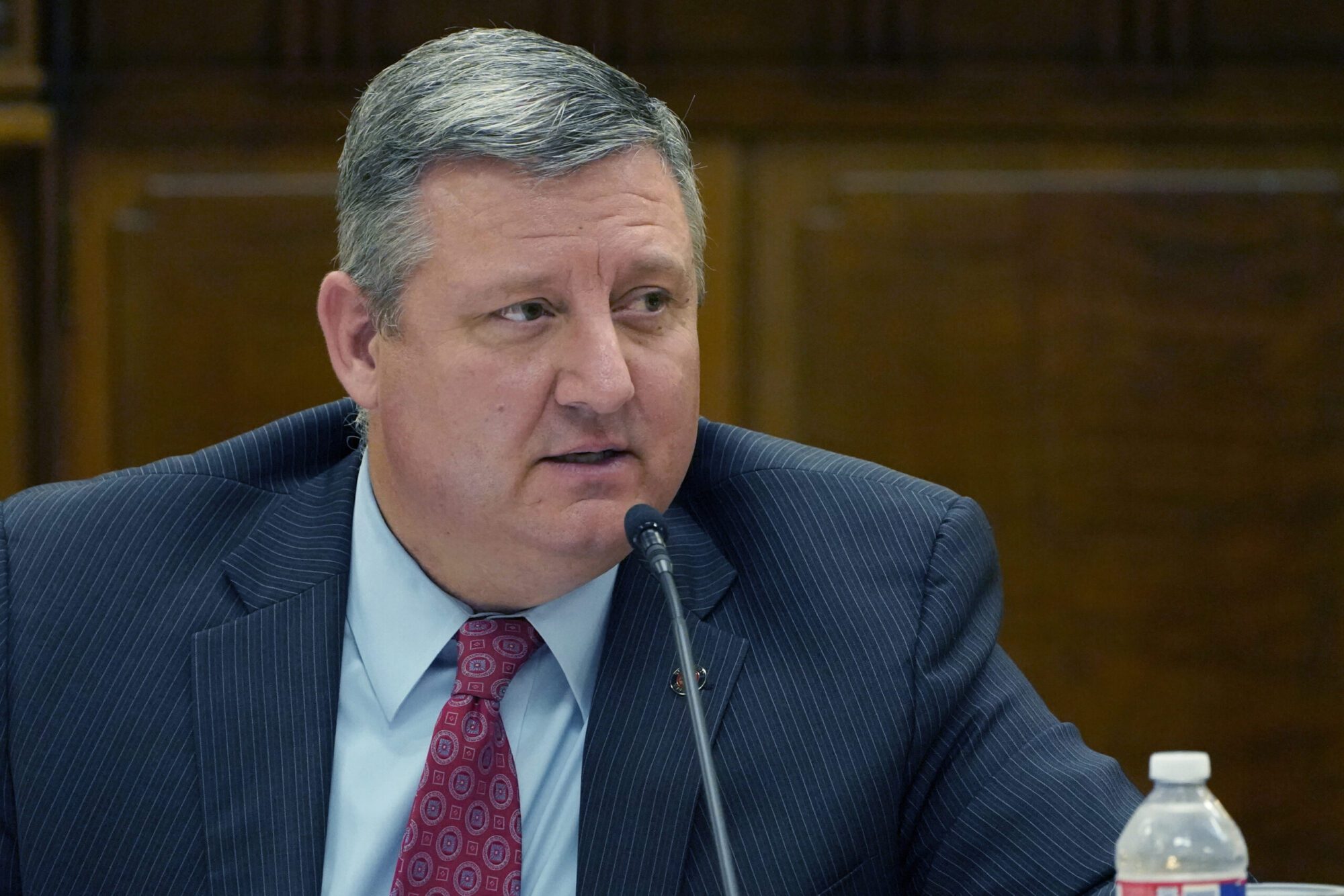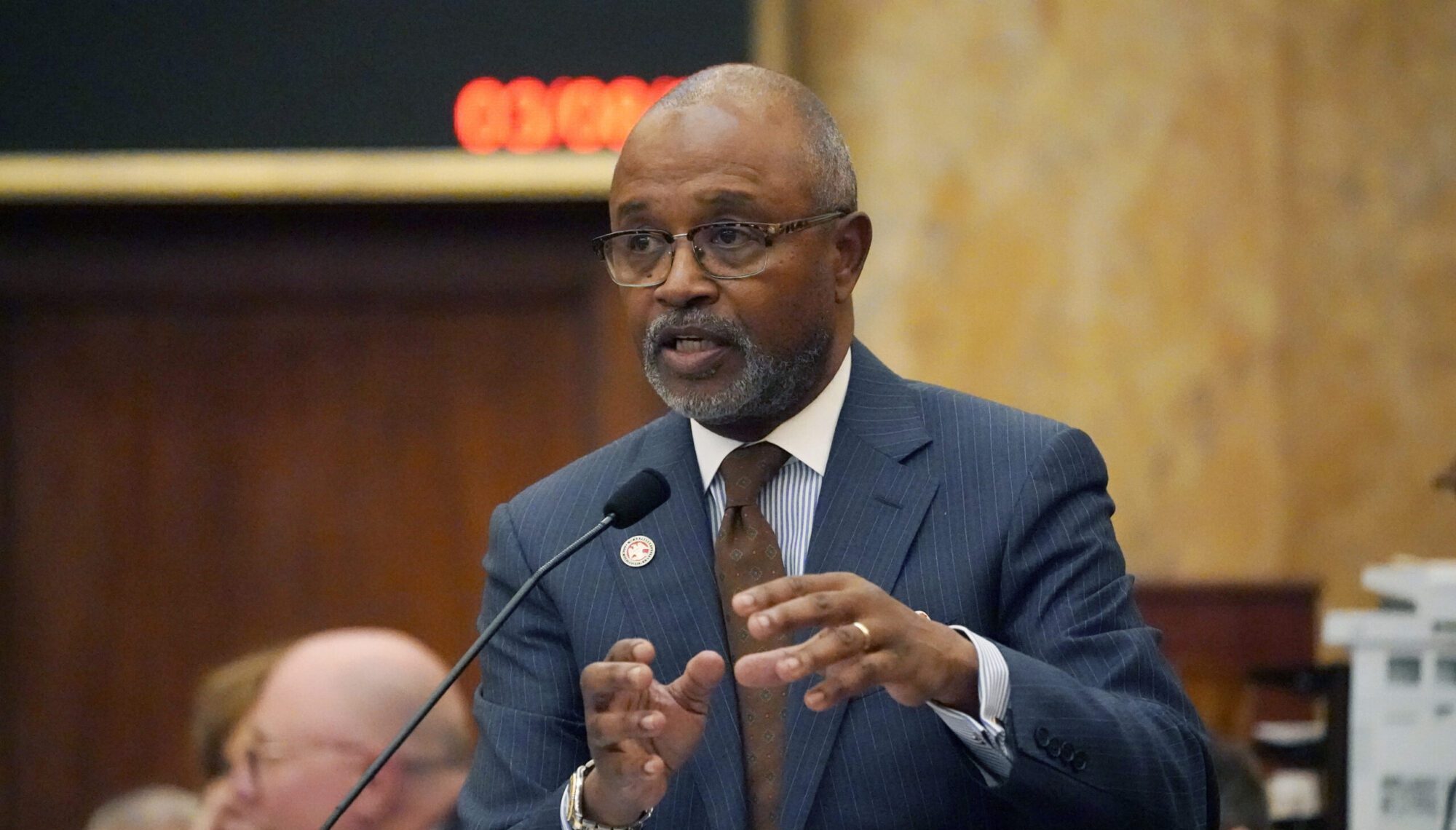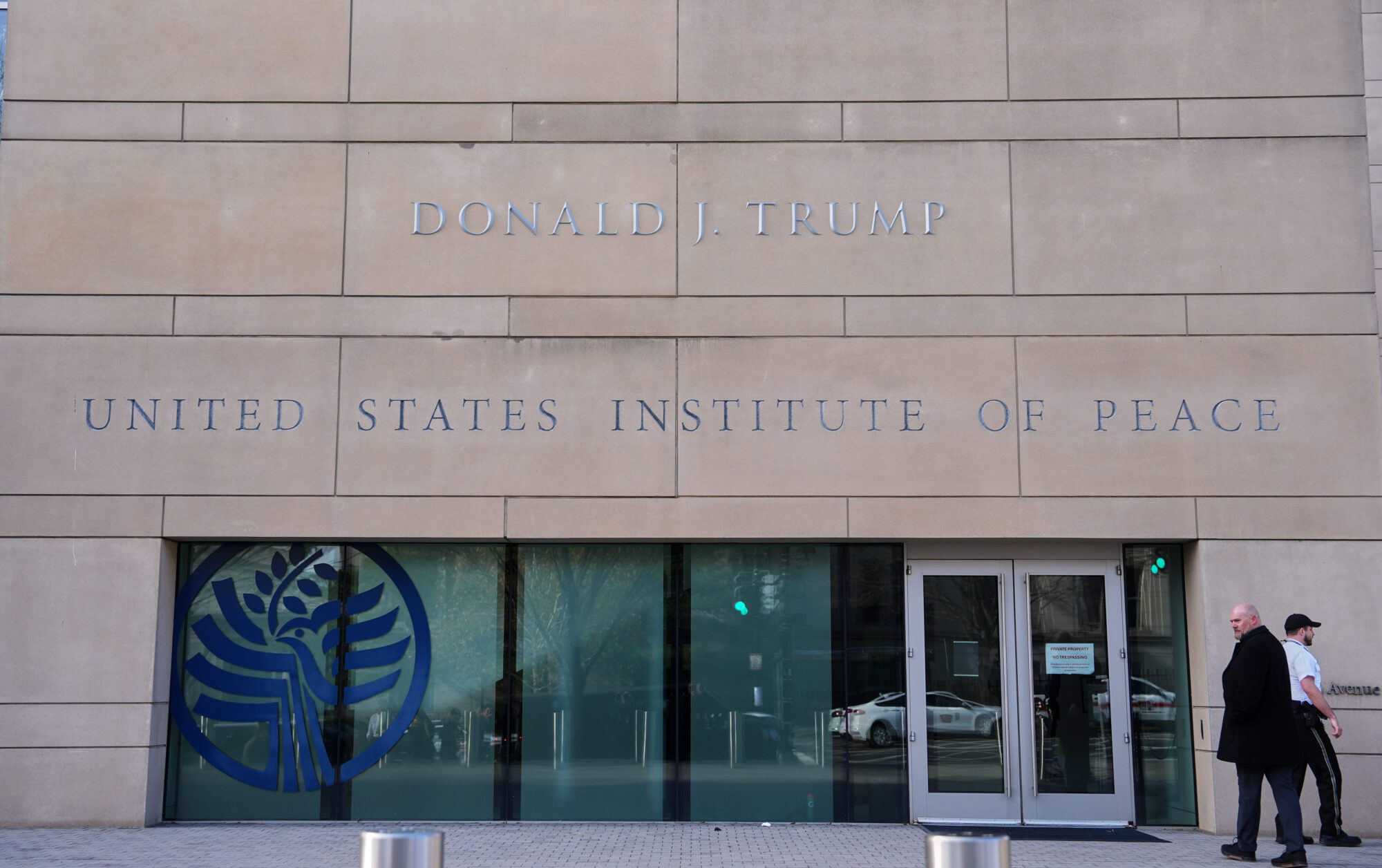
Senate Education Committee chairman Dennis DeBar Jr., R-Leakesville, addresses committee members during a teacher pay hearing at the Capitol in Jackson, Miss., Wednesday, Sept. 15, 2021. (AP Photo/Rogelio V. Solis)
- The chamber also rolled in $50 million for a potential teacher pay raise during floor action on Thursday.
A day after the Mississippi House of Representatives brought its education funding formula back to life through the amendment of a Senate bill, the Senate revived its own legislation that tweaks the current funding formula through use of a House appropriations bill.
READ MORE: INSPIRE Act finds new life
On the floor of the Senate on Thursday, Education Committee Chairman Dennis DeBar (R) proposed a strike-all amendment to HB 1823, which would use a tweaked Mississippi Adequate Education Program (MAEP) funding formula and roll in a couple of additional funding points, including $50 million for teacher pay raises and $206 million in additional general funding, among others.
The proposed teacher pay raises, should the funding reach the Governor’s desk, would provide an additional $1,000 to each educator’s annual pay.
Senator DeBar said base K-12 educational funding last year totaled $2.3 billion. This year, if the bill is passed, it will be $2.9, totaling an estimated $546 million increase under their revised MAEP formula and additional line items.
Also included in the bill are increases to help cover the cost of rising health insurance premiums for the Department of Education.
One other addition tacked on by the Senate could address the ongoing difference between the two legislative bodies regarding the best method to fund the state’s K-12 education system. Senator DeBar said the strike-all added $25,000 for the Mississippi Department of Education to conduct a study on MAEP and any other formula, allowing the Department of Education to make funding recommendations to the Legislature next session.
Senator John Horhn (D) asked about the difference in funding between the Senate’s proposal versus the House’s INSPIRE Act. What the Senate aims to do, DeBar responded, is provide an additional $256 million, including the teacher pay raises, while the House’s formula would provide about $250 million more.
“The House seems to be dug in on INSPIRE; the Senate has this position. Is it conceivable that we’ll get a budget for K-12 before we get out of here?” Horhn asked.
“I’ve committed to the new state superintendent, and everybody else, that at the very least we could level-fund education so that our districts will have a budget,” DeBar stated, adding that it is his intention to give the districts budgetary confidence to hire teachers before those educators decide to take jobs outside of the state.
While level funding will be provided for Career and Technical (CTE) courses, Senator DeBar said he hopes the Department of Education will use some of the additional $206 million in general funding to provide more to CTE.
“Cause as you know, not every child goes to college. And this is another avenue where a child or student can graduate and potentially have certificates or a license and go right to work as soon as they graduate,” DeBar explained.
The strike-all amendment did include charter school appropriations totaling $900,000 from general funds and $500,000 in charter school special funds. However, an amendment was submitted to adjust the $1.4 million in total appropriations to charter schools by Sen. John Polk (D). Polk said he conferred with the legislative PEER Committee before making the amendment, which removed the $900,000 from the general fund and $500,000 from charter school special funds, and inserted $1.4 million from the charter school special fund.
“They’ve accumulated quite a sum of money and at this time PEER and I don’t think that they need the additional $900,000 from the general fund, so we could spend that on some other opportunities that exist,” Polk described.
In support of the amendment, DeBar said it was submitted based on the fact that the special fund currently totals $2.5 million. He believes charter schools can operate off of those funds for a year or two.
“They’ve got the money; this a friendly amendment. I ask that you support it,” DeBar said to the Senate.
A reverse repealer was also added to the legislation, meaning the bill is likely headed to conference should the House agree. Polk’s amendment and DeBar’s strike-all amendment passed the floor unanimously.









